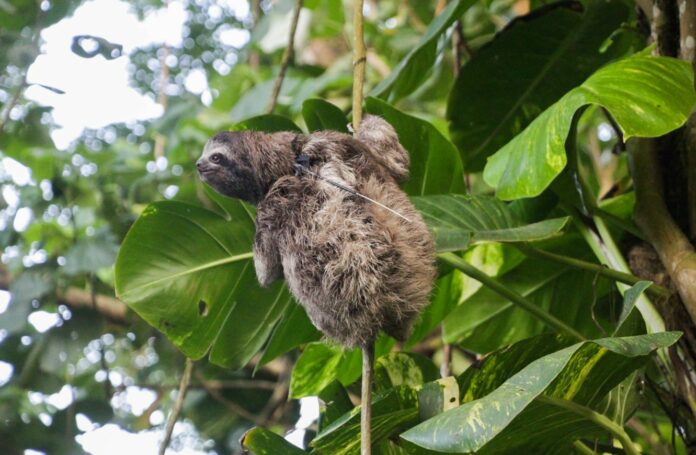Sloth Ecology: This Elusive Behavior of Sloths Allows Them To Thrive In Diverse Environmental Conditions
Scientists unveil new discoveries about the activity patterns and behavioral adaptations of two closely coexisting sloth species, Bradypus variegatus and Choloepus hoffmanni.
This pioneering research carried out in the lowland rainforests along the Caribbean coast of Costa Rica, provides invaluable insights into the intricate ecological dynamics of sloths and their exceptional resilience in a wide range of environmental conditions.
In an effort to overcome the challenges posed by the enigmatic nature of sloths, Dr. Rebecca Cliffe, the Founder and Executive Director of The Sloth Conservation Foundation, along with her colleagues, utilized micro data loggers to continuously monitor the behavior of three-toed sloths (Bradypus) and two-toed sloths (Choloepus) for extended durations, ranging from days to weeks. This innovative approach enabled them to investigate the impact of fluctuating environmental conditions on sloth activity and its connection to their unique low-energy lifestyle.
The results of their research, published in the esteemed journal PeerJ Life & Environment, reveal that both Bradypus and Choloepus sloths exhibit cathemeral activity patterns. These patterns are characterized by irregular and variable periods of activity throughout the 24-hour cycle. Such behavior enables sloths to capitalize on favorable environmental conditions while minimizing the risk of predation.
A notable finding from the study was the considerable variation observed in activity levels, both among individuals and within individuals. This flexibility implies that sloths have evolved diverse strategies to adapt to their surroundings, thereby enhancing their survival prospects in the face of environmental fluctuations.
Contrary to initial expectations, the study revealed that daily temperature did not exert a significant influence on sloth activity. Nevertheless, Bradypus sloths displayed heightened nocturnal activity during colder nights and the nights following colder days, suggesting a potential correlation between temperature variations and their behavior.
Dr. Cliffe, the principal investigator of the project, stressed the significance of this research for conservation endeavors and for comprehending the impact of human activities and climate change on tropical ecosystems in South and Central America. With the vulnerability of these ecosystems increasing, unraveling the behavioral ecology of wild sloths becomes paramount in formulating effective conservation measures.
The elusive nature of sloths has traditionally posed challenges for long-term observational research. However, the utilization of micro data loggers has provided unparalleled insights into their behavioral patterns and adaptations. This significant breakthrough sets the stage for further investigations and inspires the scientific community to employ innovative approaches in exploring the behavioral ecology of other elusive species.
The outcomes of this study not only enhance our comprehension of sloth ecology but also underscore the significance of preserving and safeguarding tropical rainforests and their distinct inhabitants. As the global climate undergoes changes and human activities continue to impact these delicate ecosystems, the knowledge acquired from this research will play a pivotal role in devising strategies to protect their biodiversity and promote sustainable practices.
Source: 10.7717/peerj.15430
Image Credit: The Sloth Conservation Foundation
